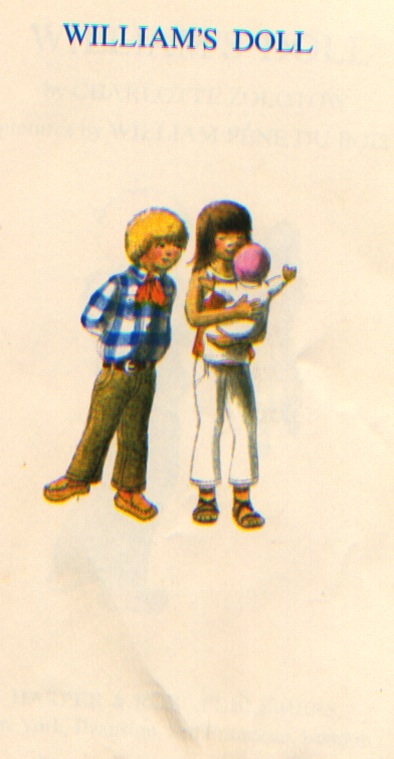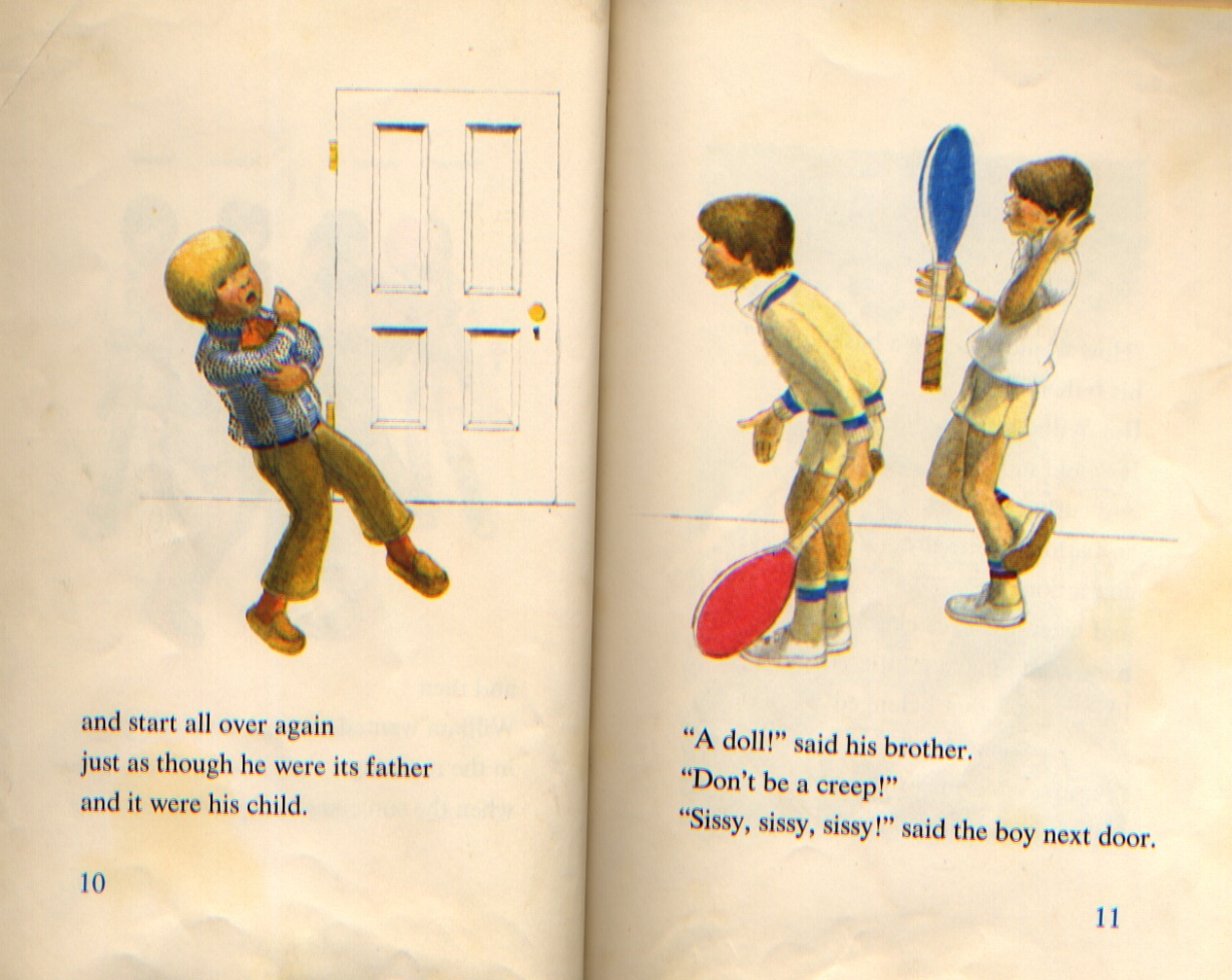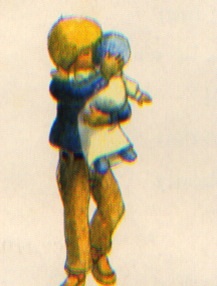“William wanted a doll.”
And so begins Charlotte Zolotow’s classic picture book, William’s Doll, illustrated by William Pene Du Bois. Published 38 years ago, and dedicated to Billy and Nancy, it is still relevant today — and very possibly moreso.

This title has been on my mind a lot lately, and comes to mind whenever the discussion turns to “books for boys.” Somehow the collective thinking about boys and reading has become muddled, to the point where “boys” has become a code word for “reluctant readers.”
I’ve talked about this before, here and here and here and elsewhere, and I don’t wish to repeat myself endlessly. Except to paraphrase Walt Whitman: Boys are large and contain multitudes. I find it unsettling, even disturbing, when I come across lists of “books for boys” that offer all the usual standbys: bodily humor, nonstop action, cars and trucks, sports, violence, and so on. You know, the kinds of stuff all boys like.
Imagine such a list for girls. Would it offend you?
And now imagine all the great books, and important thoughts, that would be missing from such a list. Because the nature of such lists is reductionist and simplistic and full of stereotypes, a narrowing of what children are and what children can become. Girls and boys.
Yes, for sure, I am strongly on the side of a teacher or parent who longs to turn a reluctant reader onto books. I can understand the desire for something sure-fire, a book that will turn the trick, unlock the door, open up the world of reading. But once that door has been pushed open, let’s not forget that boys can be sensitive, thoughtful, dreamy, mild, frightened, lonely, tender, loving, sad, and a thousand more things. It’s not just farts and firetrucks.
When my oldest son, Nick, was sick with leukemia, we struggled as parents. It was tempting to give him things, do things for him, make the experience easier and more enjoyable. In short: spoil him. After a spinal tap, how do you not buy that kid a lollipop? And a DVD of whatever he wants. So we did. But not always. My wife Lisa once said one of the most profound things about parenting I ever heard. Talking about this subject, she reminded me: “We’re not only trying to take care of a sick boy — we’re trying to raise a healthy adult.”
I think that applies to boys and reading.
So let’s look at this book, William’s Doll. To me, the best illustration is on the first page, before even the title page. You know, the page we hurry past on our way to the story. It’s a picture, we will learn, of William and Nancy from next door. Nancy is holding a doll. But if you glance quickly at that illustration, look at it from a distance, it is a portrait of every young family in the world. Father, mother, and child.

“He wanted to hug it
and cradle it in his arms
and give it a bottle
and take it to the park
and push it in the swing
and bring it back home
and undress it
and put it to bed . . .”

His brother and the boy next door did not approve.

William’s father brought home a basketball instead.
He practiced a lot
and got good at it
but it had nothing to do
with a doll.
William still wanted one.

So his father brought home an electric train. With similar results.

One day his grandmother visited. William proudly showed her the basketball and his new train. He also expressed his desire for a doll, explaining, “My brother says it will make me a creep and the boy next door says I’m a sissy and my father brings me other things instead.”
His grandmother listened attentively.
“Nonsense,” she said.

She bought him a doll. I love the detail in this description, the clicking of the eyes. It reminds me of my mother’s Shirley Temple doll (not that I ever played with it!).
The doll had blue eyes
and when they closed
they made a clicking sound
and William loved it
right away.

William’s father was upset. “He’s a boy!” he said.
And so the grandmother must patiently explain to her son:
“He needs it,” she said,
“to hug
and to cradle
and to take to the park
so that
when he’s a father
like you,
he’ll know how to
take care of his baby
and feed him
and love him
and bring him
the things he wants,
like a doll
so that he can
practice being
a father.”
I highly doubt you’ll find this book on a list of “books for boys.” It’s probably too sissyish. No, instead we’ll give them books about trains and basketball.
ENDNOTE: A song based on the story, with lyrics by Mary Rodgers and music by Sheldon Harnick, was included in the bestselling album, “Free to Be . . . You and Me.” In 1974, it was turned into a television special. According to producer Marlo Thomas, ABC fought to have the song dropped from the show. She recalled: “They wanted William’s Doll cut, because it would turn every boy into a homosexual.”
True to her ideals, and (importantly) armed with enough marketable power to win this battle, Ms. Thomas refused to comply, and the song remained. Somehow civilization was not destroyed — by this show, at least.
Click here for more on the sources of Charlotte Zolotow’s inspiration for this story, which was based on personal experience as a mother and wife. Commented Zolotow: “I wrote it out of direct emotional sorrow.”


















